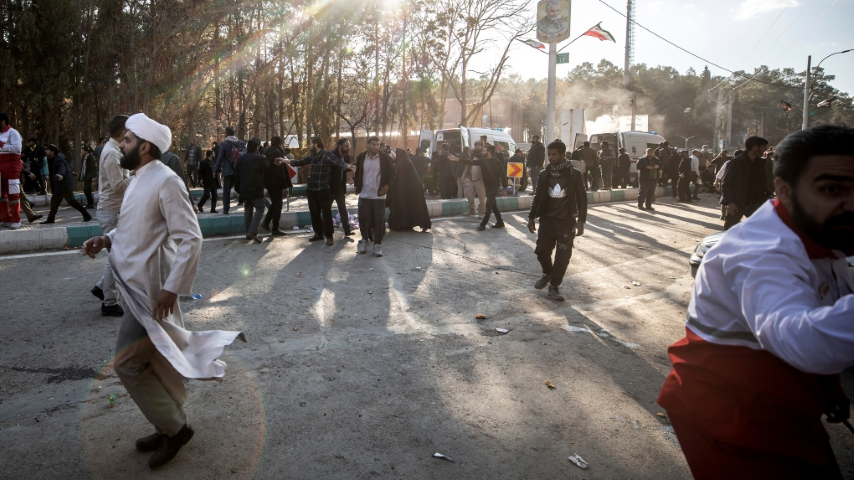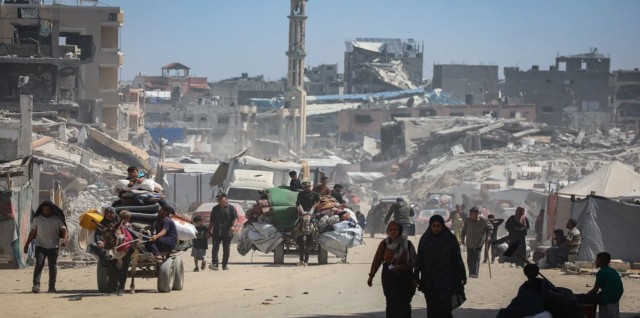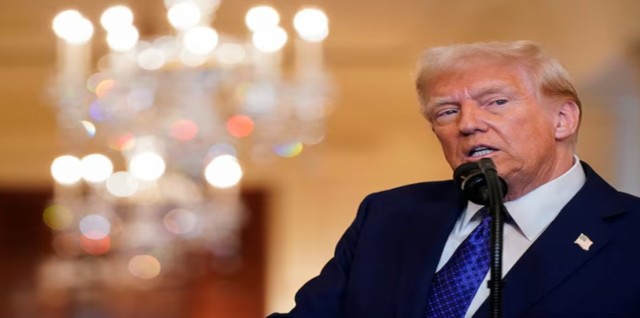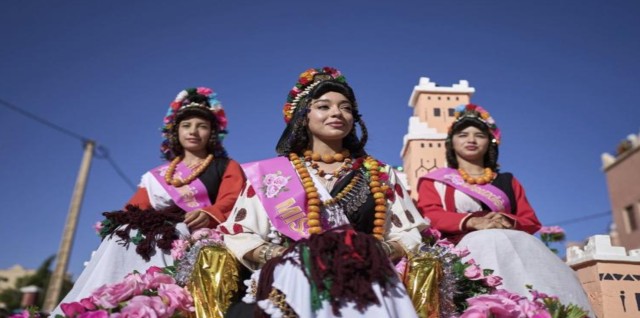
Individuals are observed following an explosion in Kerman, Iran, on Wednesday, January 3, 2024. The photograph was taken by Mahdi Karbakhsh Ravari for the Associated Press.
In a tragic turn of events, two bombs exploded during a commemoration event in Kerman, located southeast of Tehran, claiming the lives of at least 95 people and injuring over 200, as confirmed by Iranian officials. The incident occurred on the fourth anniversary of the death of General Qassem Soleimani, a key figure in the Revolutionary Guard's elite Quds Force, who was killed in a 2020 U.S. drone strike in Iraq.
The explosions, described as the deadliest militant attack in Iran since the 1979 Islamic Revolution, rocked the city minutes apart, causing chaos among the gathered crowd. The first bomb detonated near Soleimani's grave, with the second explosion occurring about a kilometre away, targeting those fleeing the initial blast.
While no group immediately claimed responsibility for the attack, Iranian leaders expressed their determination to identify and punish those responsible. The death toll, initially reported at 103, was later revised after officials realized some names were repeated on the victim list.
The incident comes at a tense time in the Middle East, with the region already on edge due to Israel's conflict with Hamas in Gaza. The attacks in Iran occurred just a day after a deputy head of the Palestinian militant group Hamas was killed in a suspected Israeli strike in Beirut.
Iran's Supreme Leader, Ayatollah Ali Khamenei, vowed a "harsh response" to the attackers, although no specific suspects were named. President Ebrahim Raisi emphasized the commitment to identifying and punishing those behind the "cowardly act."
Various possibilities for the perpetrators were mentioned, including exile groups, militant organizations, and state actors. While Israel has conducted targeted attacks in Iran over its nuclear program, U.S. officials stated they had no reason to believe Israel was involved in this incident.
The international community expressed condolences and solidarity with Iran, including unexpected messages of sympathy from regional rivals like Saudi Arabia. In the past, Soleimani played a significant role in Iran's regional military activities, earning him iconic status among supporters of the country's theocracy.
As investigations unfold, the Iranian people face a national day of mourning, grappling with the aftermath of one of the deadliest attacks in the nation's recent history. The repercussions of this tragedy are likely to be felt both domestically and across the volatile geopolitical landscape of the Middle East.















